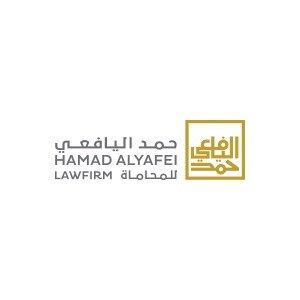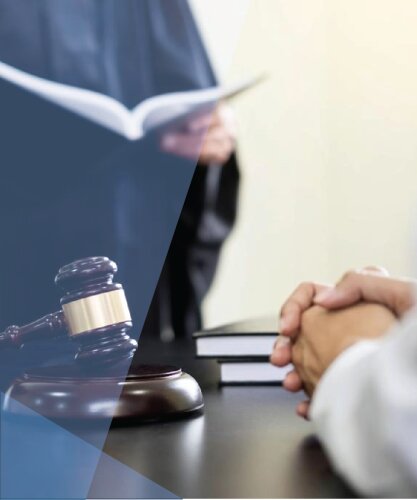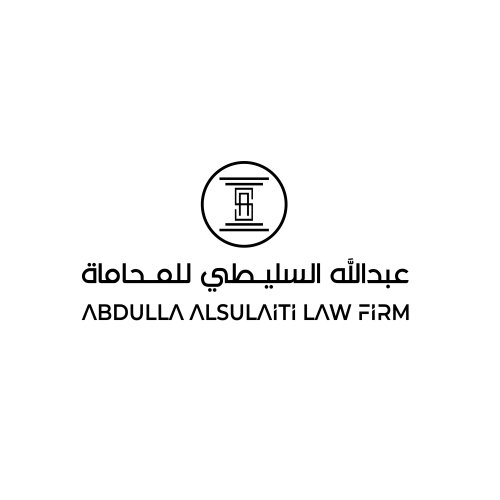Best Landlord & Tenant Lawyers in Doha
Share your needs with us, get contacted by law firms.
Free. Takes 2 min.
Free Guide to Hiring a Real Estate Lawyer
List of the best lawyers in Doha, Qatar
About Landlord & Tenant Law in Doha, Qatar:
Landlord & Tenant law in Doha, Qatar governs the relationship between landlords and tenants in residential and commercial properties. It outlines the rights and responsibilities of both parties, including rent payment, property maintenance, lease agreements, and dispute resolution.
Why You May Need a Lawyer:
You may need a lawyer in Landlord & Tenant matters if you are facing issues such as eviction, lease disputes, non-payment of rent, property damage, or breach of lease agreements. A lawyer can provide legal advice, represent you in court, and help you navigate the complex legal system.
Local Laws Overview:
In Doha, Qatar, landlords are required to register all rental agreements with the Real Estate Lease Registration Department. Rent increases are regulated by law, and landlords must provide tenants with notice before making any changes to the rental terms. Disputes between landlords and tenants are typically resolved through the Rent Dispute Resolution Committee.
Frequently Asked Questions:
1. Can a landlord enter my rented property without my permission?
Under Qatari law, landlords must provide tenants with notice before entering the property for inspections or repairs, except in cases of emergencies.
2. What are my rights as a tenant in Doha, Qatar?
Tenants in Doha have the right to a habitable property, privacy, and timely repairs from the landlord. They also have the right to challenge unjustified rent increases.
3. How can I terminate my lease agreement early?
Early termination of a lease agreement in Doha is typically subject to penalty fees outlined in the contract. It is recommended to consult with a lawyer before taking any action.
4. Is it legal for a landlord to increase the rent without notice?
No, landlords in Doha must provide tenants with at least three months' notice before increasing the rent, as per the law.
5. What should I do if my landlord is not maintaining the property?
If your landlord is not fulfilling their responsibilities, you can file a complaint with the Rent Dispute Resolution Committee for legal intervention.
6. Can a landlord evict me without a valid reason?
No, landlords in Doha cannot evict tenants without a valid reason as outlined in the lease agreement or the law. If you believe you are being unlawfully evicted, seek legal advice immediately.
7. What are the steps to take if my security deposit is not returned?
If your security deposit is not returned within a reasonable timeframe after the end of your tenancy, you can file a complaint with the relevant authorities or seek legal assistance to recover the deposit.
8. Can I sublet my rental property to someone else?
Subletting is typically prohibited without the landlord's consent, as it may violate the terms of your lease agreement. Consult with your landlord and seek legal advice before subletting.
9. What rights do landlords have in Doha, Qatar?
Landlords in Doha have rights to receive timely rent payments, access the property for inspections and repairs with notice, and take legal action against tenants for lease violations.
10. How can I resolve a dispute with my landlord/tenant amicably?
If you are facing a dispute with your landlord or tenant, it is recommended to try resolving the issue through open communication, mediation, or negotiation. If the dispute escalates, seek legal assistance for a formal resolution.
Additional Resources:
For more information on Landlord & Tenant laws in Doha, Qatar, you can refer to the Ministry of Justice website or contact the Real Estate Lease Registration Department for guidance.
Next Steps:
If you require legal assistance in Landlord & Tenant matters in Doha, Qatar, it is advisable to consult with a qualified lawyer who specializes in real estate law. They can provide you with personalized legal advice and represent your interests in any legal proceedings.
Lawzana helps you find the best lawyers and law firms in Doha through a curated and pre-screened list of qualified legal professionals. Our platform offers rankings and detailed profiles of attorneys and law firms, allowing you to compare based on practice areas, including Landlord & Tenant, experience, and client feedback.
Each profile includes a description of the firm's areas of practice, client reviews, team members and partners, year of establishment, spoken languages, office locations, contact information, social media presence, and any published articles or resources. Most firms on our platform speak English and are experienced in both local and international legal matters.
Get a quote from top-rated law firms in Doha, Qatar — quickly, securely, and without unnecessary hassle.
Disclaimer:
The information provided on this page is for general informational purposes only and does not constitute legal advice. While we strive to ensure the accuracy and relevance of the content, legal information may change over time, and interpretations of the law can vary. You should always consult with a qualified legal professional for advice specific to your situation.
We disclaim all liability for actions taken or not taken based on the content of this page. If you believe any information is incorrect or outdated, please contact us, and we will review and update it where appropriate.

















